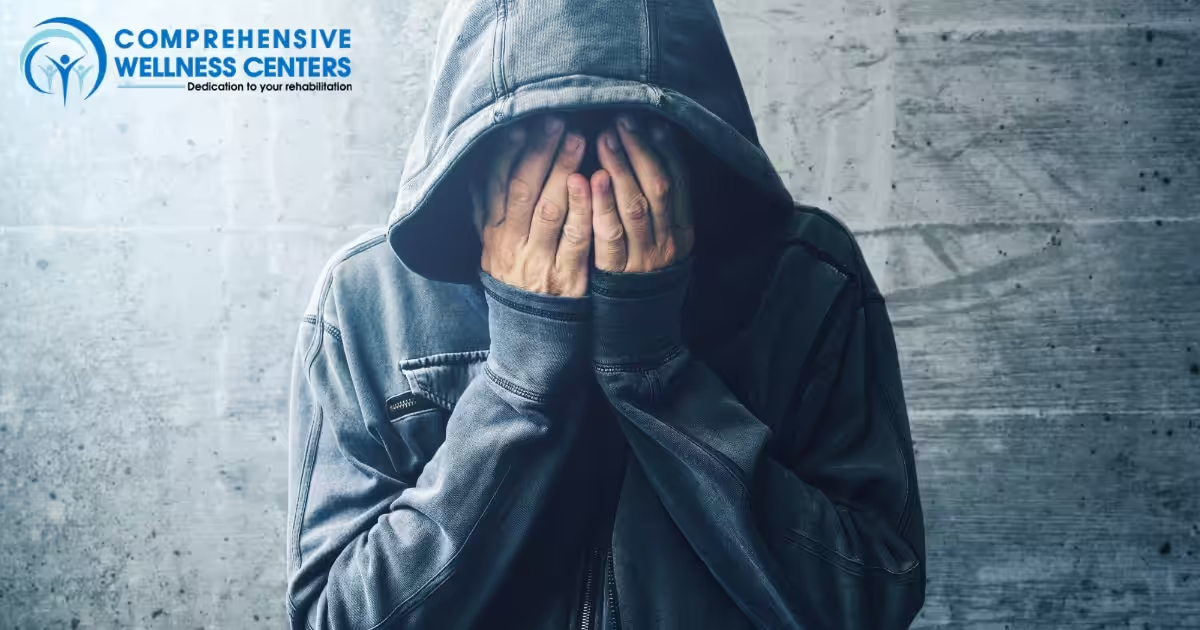A little less than 4% of people have a psychotic disorder. Psychotic episodes can be a frightening and overwhelming experience, but understanding what they are and how to get help is the first step in moving forward. You don’t have to suffer alone. There is hope for recovery. With the right support system and resources, it is possible to manage episodes and live a full life. Learn about psychotic episodes, their causes, symptoms, treatments, and coping methods.
What Is a Psychotic Episode?
A psychotic episode is an experience that can be frightening and overwhelming. It’s when someone has thoughts, feelings, or behaviors that are different from usual. For example, a psychotic episode can involve hallucinations or delusions, and a person may feel like they’re living in an alternate reality, detached from the world around them.
What Does a Psychotic Episode Feel Like?
During a psychotic episode, someone may experience an intense and overwhelming sense of disconnection from reality. People experiencing an episode can feel like they are living in an alternate world that doesn’t make sense to them or others. Symptoms of psychotic episodes can include:
- Disorganized speech and behavior
- Confused thinking
- Paranoia
- Hallucinations (hearing voices, seeing things that aren’t there)
- Delusions (false beliefs)
Hallucinations and delusions can be extremely vivid and convincing. It can be challenging to distinguish between what is real and what isn’t. It can be a frightening experience, as psychotic episodes are often accompanied by intense emotions such as fear, confusion, or panic. Remember that episodes are not the same for everyone – they can vary in length and intensity, depending on the individual’s mental health condition and environmental factors.
Causes and Risk Factors for Psychotic Episodes
Schizophrenia, bipolar disorder, and depression are potential causes of psychotic episodes. Other possible risk factors include drug use, extreme stress or trauma, and sleep deprivation.
Other risk factors include a family history of psychotic disorders, excessive drug or alcohol use, and certain medications. People who experience psychosis may have an underlying biological susceptibility, but environmental factors can also play a role. Keep in mind that psychotic episodes are not the result of personal weakness – they are complex mental health conditions that require medical treatment and support.
Treatment Options
Psychotic episodes are best treated with a combination of medication and psychotherapy. These two interventions can help reduce the intensity of psychotic symptoms and improve the quality of life.
Medication
Medication can manage psychotic symptoms by blocking or reducing hallucinations and delusions. Antipsychotics can help control psychotic symptoms and reduce the intensity of psychotic episodes. Landing on the proper medication and dosage can be challenging and take some trial and error. We know this part is tricky, but hang on. It’ll be worth it when we find the dosage that works best for you.
Psychotherapy
Psychotherapy can help individuals work through traumatic experiences, manage stress and emotions, and develop healthy coping skills. Cognitive behavioral therapy (CBT) is a popular form of psychotherapy. It can help individuals gain insight into psychotic episodes and learn strategies for managing psychotic symptoms.
Other treatments like yoga, mindfulness meditation, art therapy, and integrative therapies can also help individuals manage psychotic episodes. It would be best if you discussed treatment options with a doctor or mental health professional to find the best approach.
Other Coping Strategies
There are also lifestyle changes and coping strategies that can help people manage psychotic episodes. Some essential habits include:
- Maintaining a regular sleep schedule
- Engaging in healthy activities
- Sticking to a nutritious diet
- Avoiding drugs and alcohol
- Finding ways to manage stress
These actions don’t cure psychotic episodes but can help people cope with the symptoms and reduce their risk of future episodes.
Reach Out For Help
Reaching out for help is a big part of coping with symptoms. Many resources, such as therapists, psychiatrists, or support groups, provide support and guidance.
Educate Family and Friends
Family therapy can allow family members to support one another and learn how to respond effectively when psychotic symptoms arise. If they understand what it is and how it can affect the individual, they can be more supportive and understanding.
Find Support Groups
Support groups provide a safe space for people with psychotic disorders to connect and share their experiences with others who understand. They can be a great source of comfort and understanding, helping people to feel less alone in their struggles.
Impact of Stress on Psychotic Breaks
Stress is a known trigger for psychotic episodes, so you need to be able to identify and manage daily stressors. Taking regular breaks, engaging in relaxing activities, getting enough sleep, eating healthily, and exercising can help manage stress levels.
Psychosis Treatment in Lantana, FL
Psychotic episodes are not something to feel ashamed of; they are a part of your story, and you can take steps to manage psychotic symptoms. Remember that psychotic episodes can be incredibly distressing, but help is available. Psychosis is treatable. Don’t hesitate to seek professional assistance if you or someone you care about is struggling. With the proper support, psychotic episodes can be managed and reduced in intensity.
If you or someone you know is struggling with psychotic episodes, reach out for help. Talk to a mental health professional at Comprehensive Wellness Centers in Lantana, Florida, to find the best treatment plan for you. Remember that help is available—you don’t have to go through this alone. Call us at 855-844-2514 to get started. You are strong, and you can get through this. Take care of yourself – you’re worth it.

